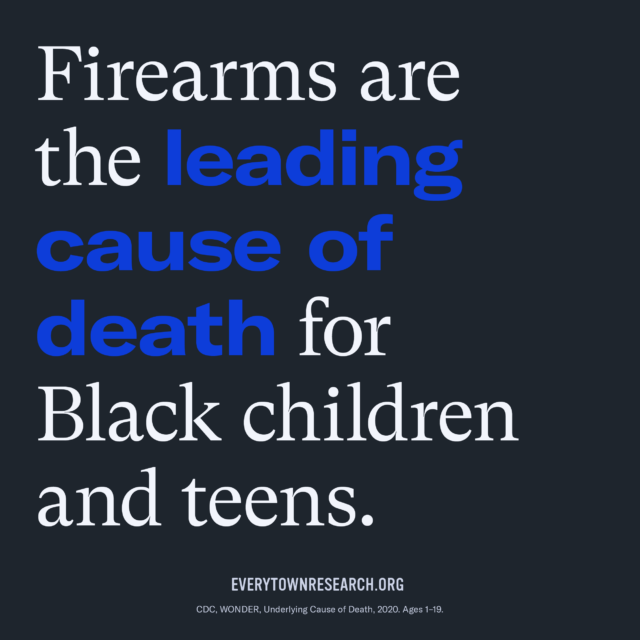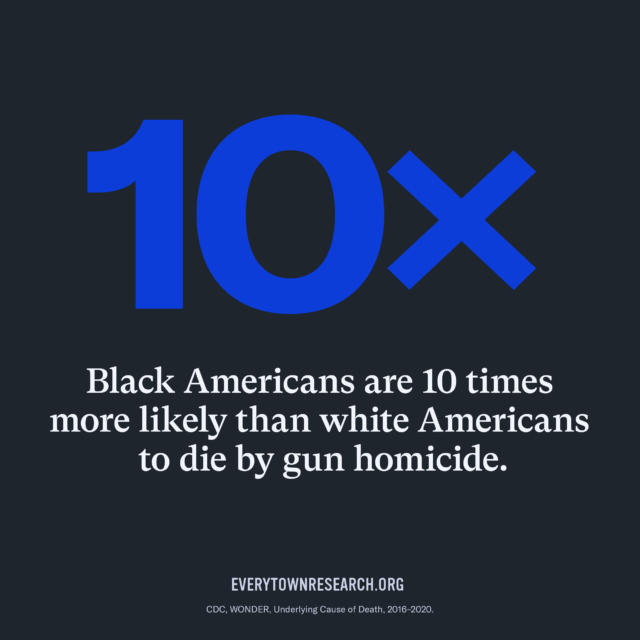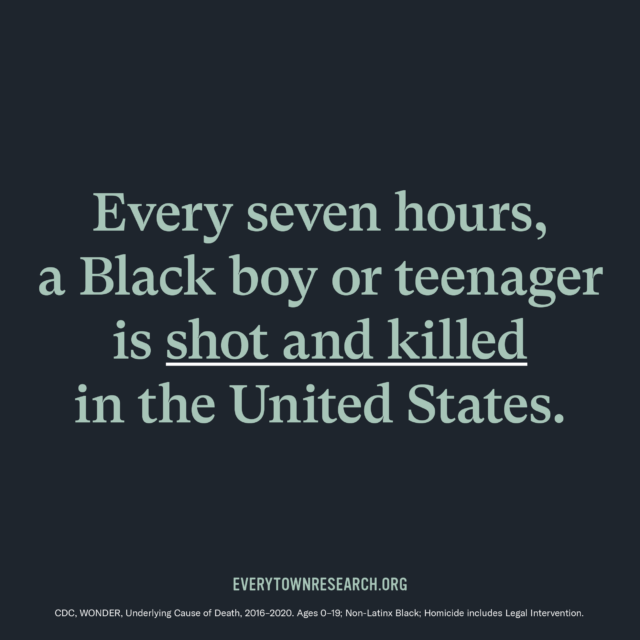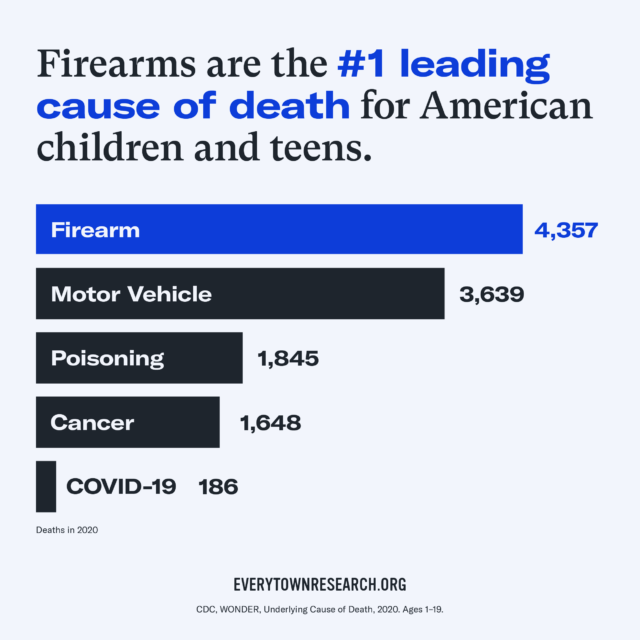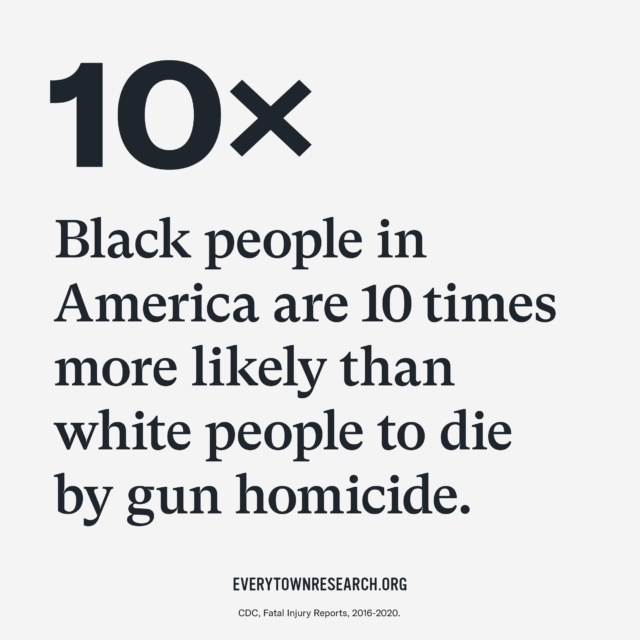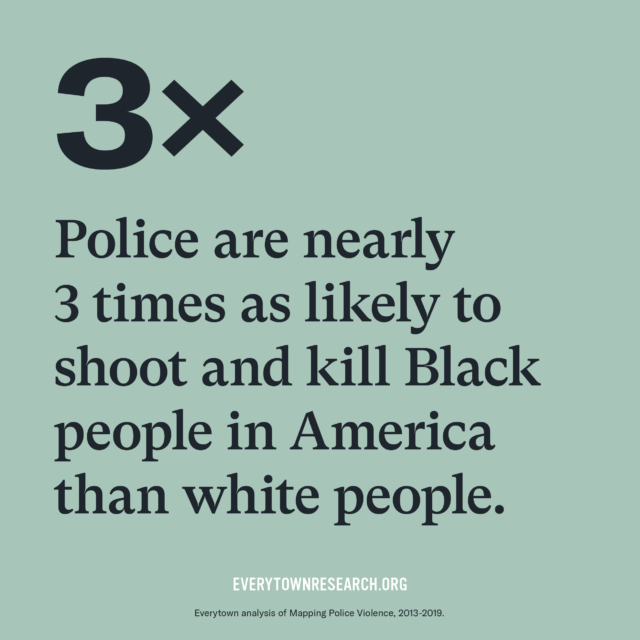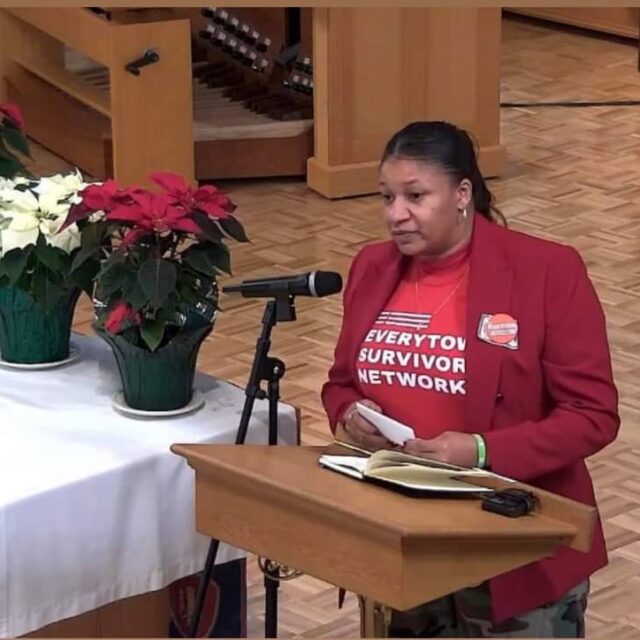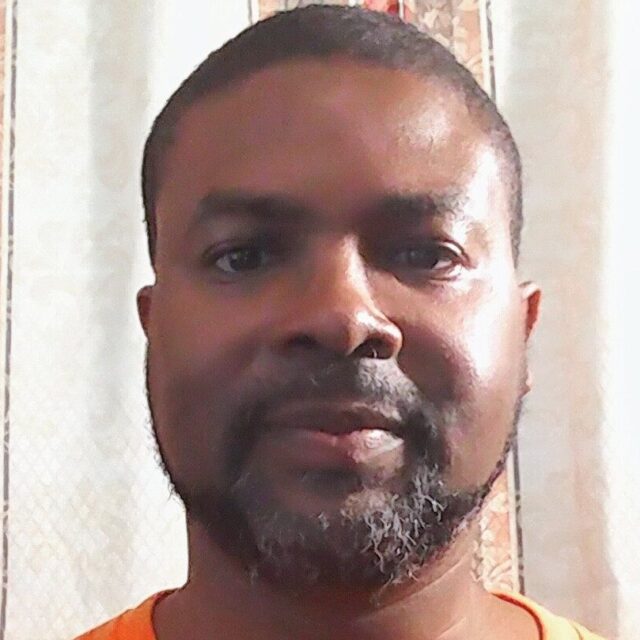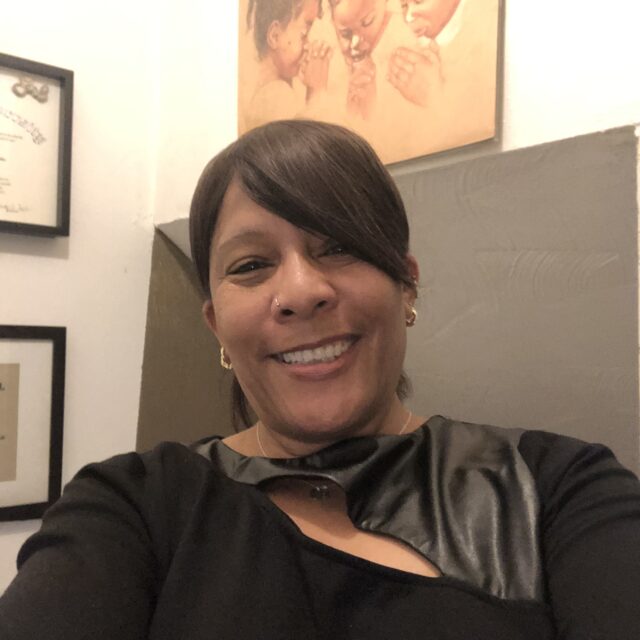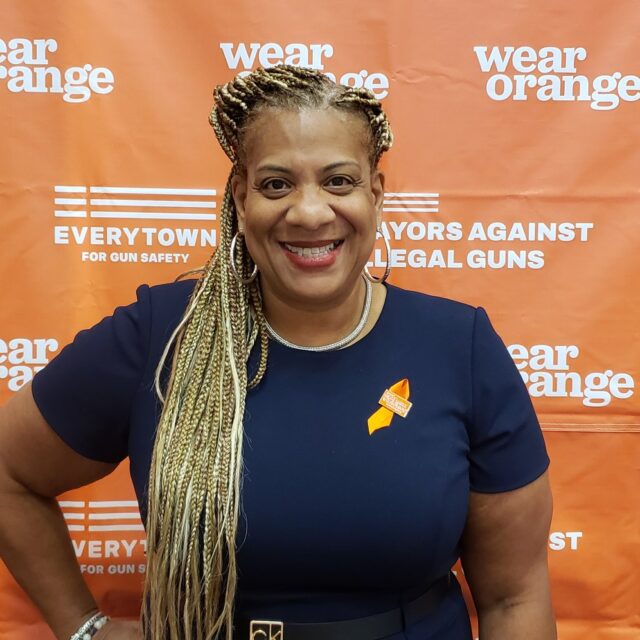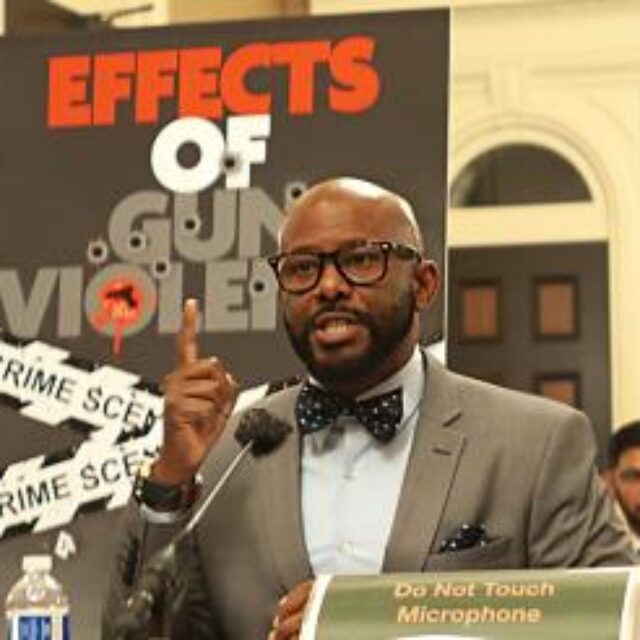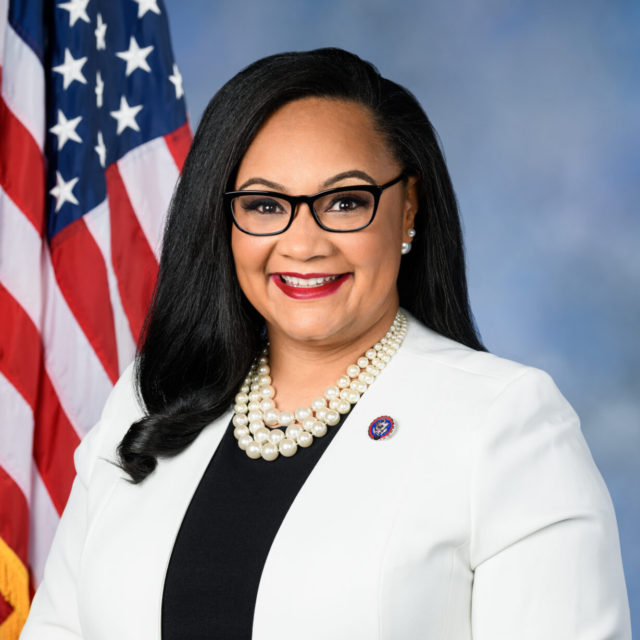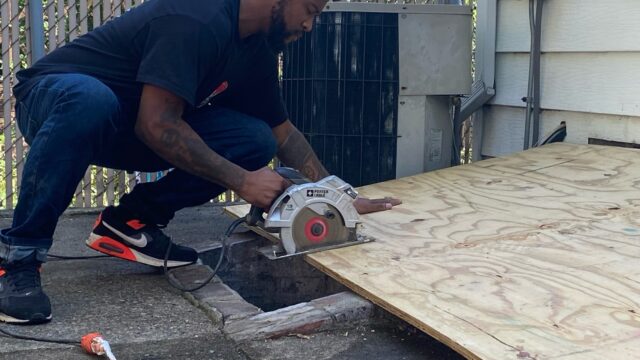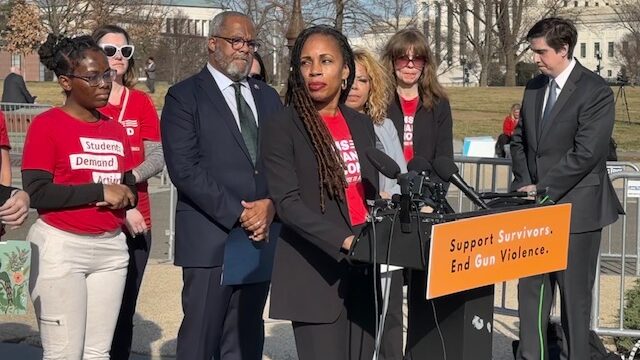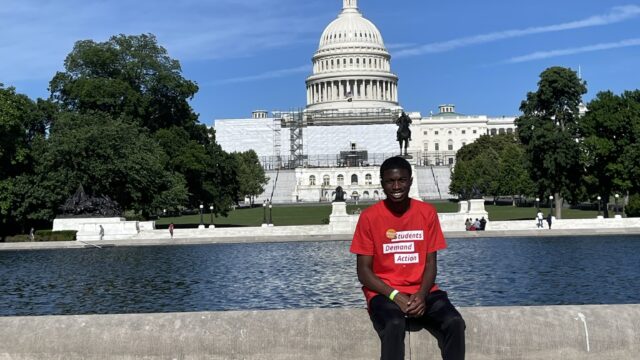2023 Black History Month
Welcome Message from Angela Ferrell-Zabala and Michael-Sean Spence
Lift Every Voice and Sing: Songs of Black Resilience, Courage, Innovation and Joy
- Week One: Black Resilience
- Week Two: Black Courage
- Week Three: Black Innovation
- Week Four: Black Joy
- Week Five: Black Hope for the Future
- Angela Ferrell-Zabala, Senior Vice President of Movement Building
- Michael Sean-Spence, Managing Director of Community Safety Initiatives
Blog Posts
Throughout Black History Month, Everytown is amplifying the voices of tireless advocates across the country to talk about why they joined the movement to stop the gun industry from continuously profiting off of unregulated gun sales. Be sure to check this webpage throughout the month for updates to read more blogs!
Week 1: Black Resiliency
Week 2: Black Courage
Week 3: Black Innovation
Black Innovation in the Gun Violence Prevention Movement I first got involved in gun violence prevention while working at the Neighborhood House, a community center in the Portland area of Louisville, Kentucky. It was here that I learned that being innovative in the anti-gun violence movement means taking a holistic… Continue
Week 4: Black Joy
Black Joy in the Gun Violence Prevention Movement Silence isn’t and has never been an option. In a world where you’re met consistently with the stark reality of deeply ingrained problems that need to be addressed—inequities, human suffering, racism, sexism, and of course, gun violence, it’s easy to fall into… Continue
Week 5: Looking to the Future
Looking to the Future in the Gun Violence Prevention Movement I am a gun violence survivor. And last summer, I was invited to attend the Don’t Look Away rally in Washington, DC. It was at that rally that I first saw a path for me to channel my own personal… Continue
Events
National Gun Violence Survivors Week Virtual Panel Discussions
Throughout National Gun Violence Survivors Week, we’ll be hosting three virtual community conversations on Zoom. We invite you to join one or all three.
*Can’t join a session live? Register now, and we’ll send you an email with a link to view the recording after the event.
Black Innovation and the Work of Community Violence Intervention (CVI) Organizations
February 16
Senior Director of Community Safety Initiatives Michael-Sean Spence will lead a panel composed of an elected official and heads of CVI organizations about the importance of innovative programs these organizations are implementing in their communities.
Livestream link still to come.
Students Demand Action Summit
February 16 | 7:30 pm CT
Students Demand Action is hosting a Black History Month summit focusing on elevating the voices of Black men and the effect their stories have on the movement. We want to uplift the stories of Black men working in the gun violence prevention movement and what they envision as a safer future for our community. We will be hearing from an elected official, a panel discussion with community organizers, and a one-on-one conversation with an Everytown staffer and more gun violence survivors, and community organizers to broaden our movement and work towards a gun sense future.
Research
Solutions
Community-Based Violence Intervention Programs
Community-based violence intervention programs apply a localized approach to preventing gun violence by working with individuals at the highest risk of shooting or being shot to heal from trauma. One important characteristic of all of these programs is that they draw expertise and experience from within the community. Many of these programs have been proven to reduce gunshot victimization in the neighborhoods most impacted by gun violence, in part by addressing the underlying trauma so often woven into these tragedies.
Crime Prevention Through Environmental Design
The physical environment in which we live can greatly influence our individual actions. Understanding this is key for reducing gun violence. Fixing abandoned buildings, planting flowers in parks, cleaning vacant lots, and lighting unsafe spaces make a huge difference in empowering communities. All of these efforts to improve neighborhoods and reduce blight can help increase healthy activities in these spaces and healing from the violence of years of underinvestment in public spaces and services.
Restorative Justice Programs
Restorative justice is an approach that emphasizes listening to victims and holding those who hurt them accountable. Restorative Justice programs, sometimes called circles, bring together those who have been directly harmed by crime with those who have caused this harm. The purpose of these circles is to address the impact of the crime, hold offenders accountable, and make things as right as possible for those who were harmed. It is an opportunity to invite more voices to the table beyond law enforcement, government institutions, and the offender, sometimes including members of the community at large. The focus is more on healing and preventing future crimes than on punishment.
Economic Opportunities
Employment opportunities, especially for young adults, can serve as a critical protective factor in disrupting cycles of violence and trauma among Black youth. Funding for job readiness and workforce development programs are beneficial in helping young people get a foothold in adult life. Giving incentives to businesses that employ youth in the public, private, and nonprofit sectors can also expand employment opportunities. This economic support can help reduce the negative impacts from young people struggling to meet their basic needs.
Social Graphics
